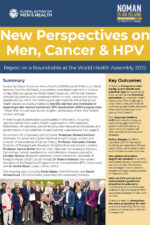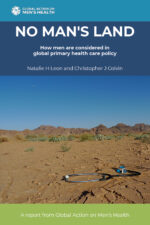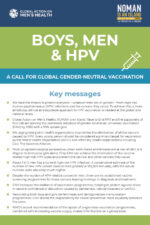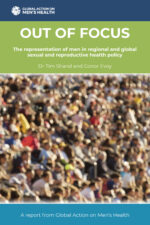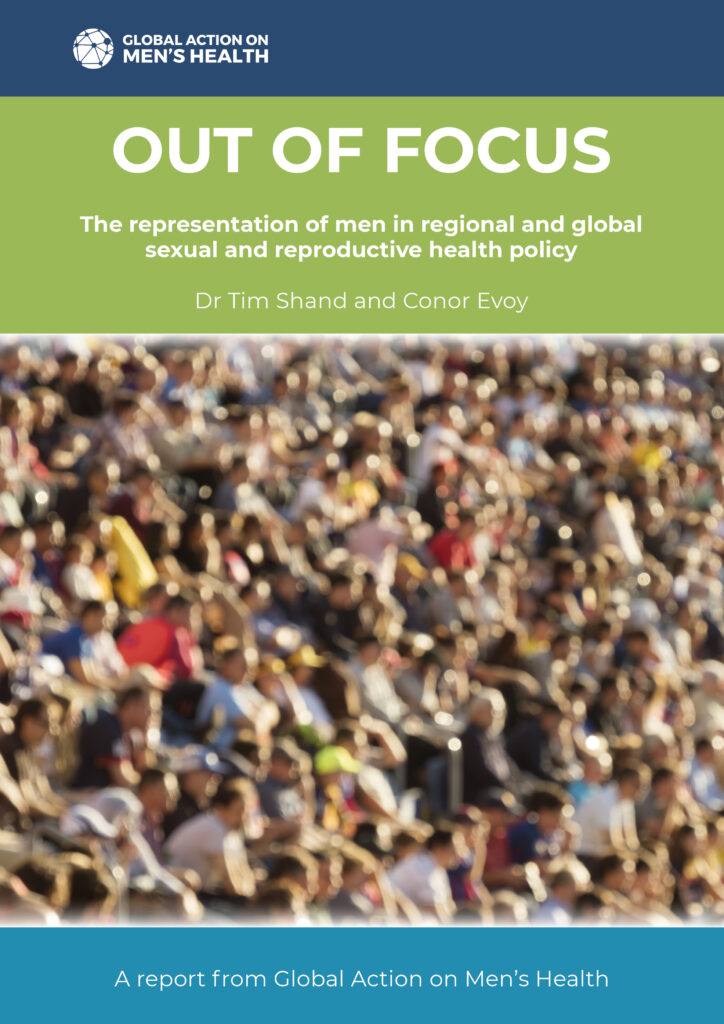Out of Focus
The representation of men in regional and global sexual and reproductive health policy
Launched 4th September 2024, Out of Focus: the representation of men in regional and global sexual and reproductive health policy provides the robust evidence that is needed to push men’s (and women’s) sexual and reproductive health (SRH) policy to the next level.
Good SRH is important to everyone. But, in many respects, men are not doing well. They are more likely than women to acquire sexually transmitted infections such as syphilis and gonorrhoea or to be infected by HIV. Sperm counts are falling globally and male sexual dysfunctions, such as erectile dysfunction, are becoming more prevalent. Sexual violence against men and boys, while much less common than sexual violence against women and girls, is a largely unrecognised problem. Men are too often reluctant users of SRH services partly because of gender norms that inhibit help-seeking but also because services are not geared towards their needs.
Men’s and women’s SRH are, of course, inextricably linked. Better outcomes for men would lead to better outcomes for women, and vice versa. Greater involvement of men in contraception and family planning and the elimination of gender-based violence would contribute significantly to greater gender equality.
Certainly, the SRH of women and girls needs greater attention in policy and practice. But men’s SRH is currently largely absent from it. This report finds that only one in six (16%) of the policies produced by many of the leading organisations in global health addressed men’s SRH needs. Where men are mentioned, this is often in negative terms. Key sub-groups of men are overlooked. While there are some good stand-alone examples of policy aimed at men, this is nowhere near being mainstreamed.
Policymakers must increase the focus on men’s SRH, particularly men’s own SRH needs, and in a more positive way. More sex-disaggregated data is needed. Largely neglected issues, such as male infertility, male sexual dysfunctions and male reproductive cancers, must be addressed. The SRH needs of men who have sex with men should no longer be viewed solely through the lens of HIV and sexually transmitted infections. Male sexual pleasure can no longer be a taboo subject.
The adoption of overarching men’s health policies by some countries at national or state levels, as well as WHO Europe’s regional men’s health strategy, provides a platform for the development of policies on specific men’s health issues, including SRH. Global Action on Men’s Health will be making the case for a truly gendered approach to SRH programme, practice, and policy development which includes a wide range of male-targeted initiatives alongside greater attention to the needs of women and girls.
GAMH is very grateful to Tim Shand and Conor Evoy from ShandClarke Consulting for all their work on this important report.
September 2024
